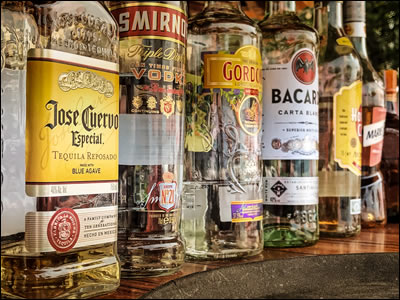How Alcohol Slows Weight Loss

The "Silly Season" is upon us once again and, I hate to tell you this, but if you're trying to lose weight then alcohol will slow your efforts in a number of ways. Here are just a few.
Alcohol is used as a primary source of fuel
It's not just the calorie content of alcohol that is a problem. When alcohol is consumed, it's burned first as a fuel source before your body uses anything else. This includes glucose from carbohydrates or lipids from fats.
When your body is using alcohol as a primary source of energy, the excess glucose and lipids end up, unfortunately for us, as adipose tissue, or fat.
Alcohol is often "empty" calories
Alcoholic drinks are often referred to as empty calories. This means that they provide your body with calories but contain very little nutrients.
There are almost 155 calories in one 12-ounce can of beer, and 125 calories in a 5-ounce glass of red wine. By comparison, a recommended afternoon snack should have between 150 and 200 calories. A night out with several drinks can lead to consuming a few hundred extra calories.
Drinks that have mixers, such as fruit juice or soda, contain even more calories.
Alcohol can affect your organs
The primary role of your liver is to act as the "filter" for any foreign substances that enter your body, such as drugs and alcohol. The liver also plays a role in the metabolism of fats, carbohydrates, and proteins.
Excess alcohol consumption can lead to what is known as alcoholic fatty liver. This condition can damage your liver, affecting the way your body metabolizes and stores carbohydrates and fats.
Changes in the way your body stores energy from food can make it very difficult to lose weight.
Alcohol can negatively affect your sleep
A nightcap before bed may sound like a ticket to a good night's rest but you may want to reconsider. Research suggests that alcohol can lead to increased periods of wakefulness during sleep cycles.
Sleep deprivation, whether from lack of sleep or impaired sleep, can lead to an imbalance in the hormones related to hunger, satiety, and energy storage.
Alcohol affects digestion and nutrient uptake
Your social anxiety isn't the only thing that alcohol inhibits. Intake of alcoholic beverages can also inhibit proper digestive function.
Alcohol can cause stress on the stomach and the intestines. This leads to decreased digestive secretions and movement of food through the tract.
Alcohol intake of all levels can lead to impaired digestion and absorption of these nutrients. This can greatly affect the metabolism of organs that play a role in weight management.
What's the Take Away?
If you're serious about wanting to lose those excess kilos then you may want to limit your alcohol consumption or just take a break from it altogether.

